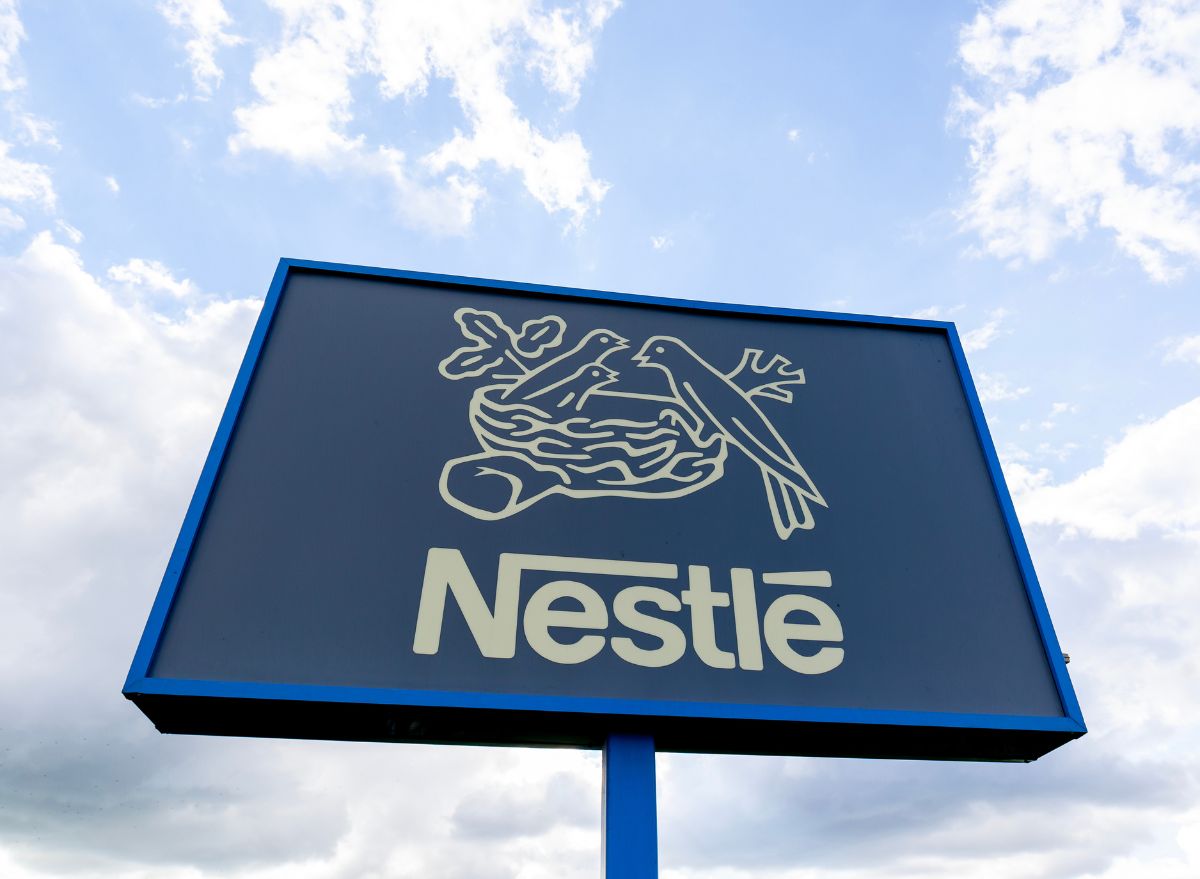Your Favorite Candy Is About to Get More Expensive

Whether it be food, gas, or rent, inflation has driven up prices around the world and elevated the cost of living for everyday consumers. Eggs, for example, have soared in price and become especially hard to track down on grocery store shelves. And prices for lunch meat jumped 15.1% from Dec. 2021 to Dec. 2022, according to the U.S. Bureau of Labor Statistics.
Giants like Nestlé are no exception to this trend of rising prices. The maker of the popular candy KitKat will have to raise prices for its food products this year to make up for higher production costs, according to chief executive Mark Schneider.
RELATED: 1 In 3 Restaurants Now Serves Lower Quality Ingredients Due to Inflation
Nestlé, the world's largest food company, already upped prices throughout 2022 to offset a rise in costs. The company said in October that it pushed prices up 7.5% in the first nine months of 2022 to reflect "significant cost inflation." This was the biggest of such hikes in decades, The Financial Times reported.
Schneider warned in an October interview with Bloomberg Television that inflation would continue to be an issue in 2023, indicating that further price hikes could be on the horizon. He also said that Nestlé hadn't yet passed its higher production costs onto consumers, according to Bloomberg.
For now, it remains unclear just how much Nestlé may increase its prices in 2023. Schneider told the German newspaper, Frankfurter Allgemeine Zeitung, that the increases will not be as severe as some earlier hikes in 2022, but "we have some catching up to do over the full year." A Nestlé representative contacted by Eat This, Not That! declined to comment on the hikes Schneider previewed, say exactly how much prices will increase this year, or predict when the company may be able to ease the increases.
Another major consumer goods company is also planning to raise prices in 2023 as it contends with higher production costs. The London-headquartered Unilever, whose brands include Ben & Jerry's and Hellmann's, said Thursday that it would continue to boost prices for its goods in 2023 following an 11.3% increase throughout 2022, according to The Guardian.
The company expects cost inflation to continue this year and predicted that net material inflation in the first half of 2023 will reach about $1.6 billion. However, Unilever said it plans to ease price increases in the second half of the year and believes net material inflation will be "significantly lower" then as well.









